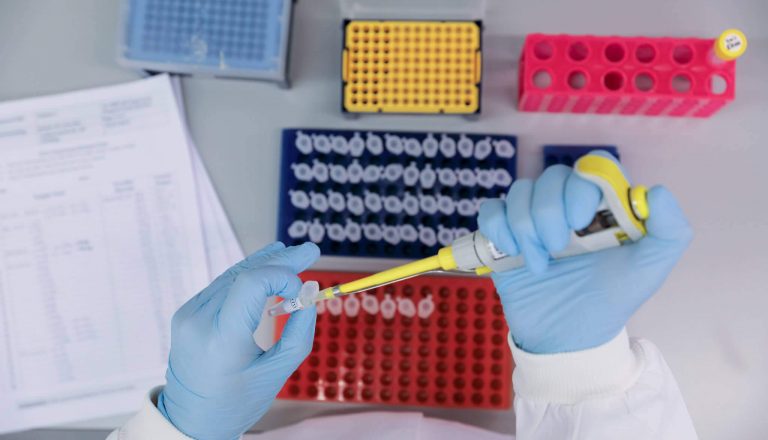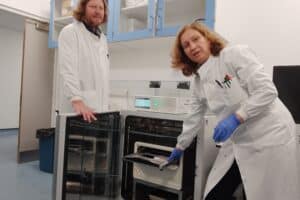Research
An exploratory pilot study to enable development of improved drug therapy for childhood bone cancer
Osteosarcoma (OS) is a type of bone tumour that mostly affects children and young adults. Survival rates have improved little over the past four decades and better treatments are desperately needed. There is evidence to suggest that inhibiting a protein, called ZFP36L1, in OS cells could make existing drugs more effective. In this pilot study, Dr John Murphy and his team will seek to verify this by removing the gene for ZFP36L1 in OS cells in a “test-tube” setting. The results could pave the way for the development of anti- ZFP36L1 drugs for OS.

Project Details
- A pilot Investigation of the ZFP36L1 protein as a candidate therapeutic target in osteosarcoma cells
- Lead Researcher
- Dr John Murphy
- Research Centre
- University of Westminster
- City & Institution Postcode
- London, W1W 6UW
- Start Date
- 1 January 2021
- Project Duration
- 18 months
- Grant Amount
- £14,013
Thank you
This research project on bone cancer has been successfully completed. Your donations allow us to fund ground-breaking research that can improve treatments given to children with cancer. Thank you. Your help allows us to continue to find ways to drive up the chances of survival for children with cancer and reduce the toxic side effects that can affect the rest of their lives.
Overview
Osteosarcoma (OS) is the most common type of bone tumour in children and young adults. It is caused by the abnormal growth of bone cells. Only around 65% of children with OS survive for five years or more and survival rates have improved little over the past four decades. Better treatments are desperately needed.
New, more effective, drugs could be designed to target specific molecules (‘vulnerabilities’) in a child’s OS cells, but this requires a detailed understanding of the functions and mechanisms of such target molecules. In this pilot study, Dr John Murphy and his team are exploring the therapeutic potential of a newly-identified potential weakness in OS cells, represented by a protein called ZFP36L1. Dr Murphy and his team have been studying ZFP36L1 for many years and have some preliminary evidence from the laboratory that inhibiting this protein may reduce OS cell survival and make OS cells more susceptible to traditional anti-cancer drugs, but more research is needed to confirm this.
In this pilot laboratory study, Dr Murphy and his team will take the next steps to explore the function of ZFP36L1 and as a potential treatment target in OS. This will involve using gene-editing technology to remove the gene for ZFP36L1 from human OS cells in a “test-tube” setting, so the cells can no longer make the protein. The researchers will observe the impact that taking ZFP36L1 away has on cell function, gene activity, survival and drug resistance. Dr Murphy and his team will repeat this experiment across different OS cells, including those representing aggressive versions of the disease. This work will be essential to understand the function of ZFP36L1, its role in OS and whether it would make a suitable target for new anti-OS drugs that could make existing drugs more effective.
What difference will this project make?
Better treatments for OS are desperately needed. This pilot laboratory study aims to verify whether ZFP36L1 could be a suitable target for the development of new targeted anti-OS drugs that could make existing drugs more effective. While this work will still take several years to reach patients, seed-funding early-phase research such as this is essential for nurturing the new discoveries that could benefit patients in the future.
About the Research Team
Dr John Murphy has extensive experience in genetic research and in the biology of the ZFP36L1 protein. His team are highly skilled to carry out this project. Prof. John Norton has over 40 years of experience in cancer biology, both in the laboratory and in translating that research into patients. Dr Kalpana Surendranath pioneered the introduction of new gene editing technology at the University of Westminster. She will also be using this project to train PhD student, M. Ahmed Sidali, thus helping to support the next generation of childhood cancer researchers. Finally, Dr Kanagaraj Radhakrishnan is an expert in studying cancer cell division, growth and survival and his expertise in this field will be invaluable in this project.

Other stories
We have lots of information to help you learn more about childhood cancer. From specific cancer types, to treatments and causes.





